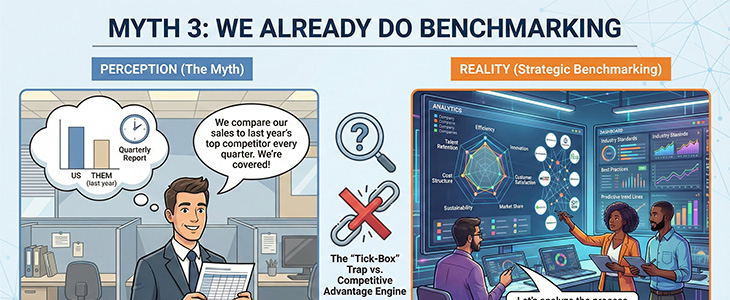In today’s digital marketplace, Google reviews are a powerful tool. They build trust, enhance visibility, and drive sales. Here’s how to spark a flood of positive reviews: Deliver an exceptional experience Focus on creating memorable customer interactions. A standout experience naturally inspires customers to share their positive stories online. Ask and make it easy Train…
Struggling to scale your HVAC business? Wondering what separates high-performing businesses from the rest? The top 20% of air conditioning, refrigeration, and heating businesses consistently hit elite-level benchmarks that drive growth, profitability, and customer loyalty. Here’s what industry leaders are doing right Key performance benchmarks (top 20%) Net profit margin: 10% – 15% COGS:…
Most entrepreneurs plan for growth, but what happens if you’re suddenly unable to run your business? If you don’t have a Business Will, your company could face chaos, legal battles, or even forced liquidation. Don’t leave your legacy to chance! What Is a Business Will? A Business Will is a legally documented plan that outlines…
The best cosmetic injectables clinics don’t just survive—they thrive with higher revenue, strong client retention, and premium pricing strategies. Are you hitting these benchmarks? $1.2M+ annual revenue (only 5-10% of clinics exceed $2M!) $300 – $1,000 per client per visit 20%+ revenue growth year-over-year 60% – 80% client retention rate (repeat business is key!) 20%…
The highest-performing accounting practices aren’t just profitable—they dominate the industry with smarter pricing, stronger client retention, and efficient operations. Are you hitting these benchmarks? 40-50% net profit margin $200K+ revenue per employee $1M+ revenue per partner 10-20% annual revenue growth $350-$500+ hourly rate for senior staff 95%+ client retention (client satisfaction = loyalty) 80-90% of…
Negotiate your mortgage every quarter. It’s a great way to save money on monthly payments and overall interest costs. Here’s why and how: Why Negotiate? Potential Savings: Even a small decrease in your interest rate can add up to significant savings over the life of your loan. Improved Cash Flow: Lower monthly payments can free…
Nobody accidentally finds themselves on top of the mountain. You only get there by having a goal, working to a plan, and working hard to make it happen. Customer retention is a growth strategy. A KPMG study found that customer retention was businesses’ most important revenue driver. At the same time, Bain & Company calculated…
Liability Protection: Some businesses, such as companies, offer limited liability protection. This means the business owner’s assets are protected from debts and liabilities. Tax Implications: Different business structures have different tax implications. For instance, a sole proprietorship's income is taxed at the owner's tax rate. At the same time, a corporation may be subject to…
Businesses can leverage ChatGPT, or similar language models, to enhance their operations and customer interactions. Here are some common use cases for businesses: Customer Support and Service: ChatGPT can be a virtual customer support agent to handle customer inquiries and provide assistance 24/7. It can answer frequently asked questions, troubleshoot issues, and provide relevant information…
A 4-day workweek, where employees work the same number of hours but are condensed into four days instead of five, has gained popularity and is being experimented with by some companies and governments. There are several potential benefits associated with a 4-day workweek: Increased productivity: Employees may experience higher productivity and focus during their working…
"You’d be stupid not to try to cut your tax bill and those that don’t are stupid in business"
- Bono: U2














